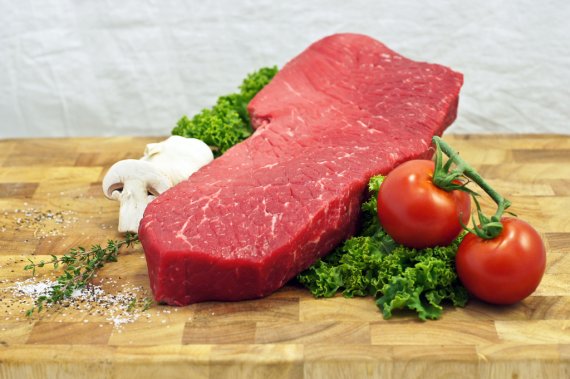Photo: Artizone
Vegetal food, the Health Council writes, needs to get a more prominent position on our plate. In the ideal situation, the Dutch would have to eat twice as much vegetables and fruit. We have to reduce the intake of animal products, although the council is less firm about this: ‘The consumption of processed meat as well as red meat is (especially in men) at such a level that it is associated with a higher risk of chronic illnesses.’ One and a half week ago also the WHO concluded that the consumption of processed and red meat increases the risk of cancer.
In the report, that was presented in The Hague today, further statement was made against sugar containing soft drinks and juices. According to the Health Council both Dutch children – who drink three quarters of a litre per day – as adults – who drink a quarter to a third of a litre per day – drink too much of this. The advice is to drink ‘as little as possible, sugar containing drinks’. And thus coke and lemonade need to be replaced with water, filtered coffee or tea.
The Health Council gives a more dietary advice, more than the earlier edition of 2006 and 1986. The recommendations are no longer about abstract nutrients such as (trans)fats and dietary fibres, but about recognizable products. It is recommended that you eat 15 grams of unsalted nuts and 90 grams of brown bread and to drink three cups of tea a day. This was a conscious choice, the Health Council writes, who wanted to make a better fit with the food choices of the consumers.
The guidelines for good nutrition should reflect the scientific consensus about a healthy diet. In the coming months the Voedingscentrum (Nutrition Centre) in the Netherlands will convert them to a new food pyramid. Daan Kromhout, professor emeritus public health research at the Wageningen University, was chairman of the commission who made the guidelines. Also Pieter van het Veer (member), Marianne Geleijnse (advisor) and Marcel Zwietering (advisor) of Wageningen University were involved.
Brief recommendations
- Eat a more vegetable and less animal product containing diet according to the guidelines below
- Eat at least 200 grams of vegetables and at least 200 grams of fruit a day
- Eat at least 90 grams of brown bread, whole wheat bread, or other whole wheat products a day
- Eat legumes on a weekly basis
- Eat at least 15 grams of unsalted nuts a day
- Eat several servings of dairy products a day, including milk or yoghurt
- Eat fish once a week, preferably oily fish
- Drink three cups of tea a day
- Replace refined grain products with whole wheat products
- Replace butter, hard margarine and cooking fats with soft margarine, liquid cooking fats and vegetable oils
- Replace unfiltered coffee with filtered coffee
- Limit the consumption of red meat and in particular processed meat
- Drink as little as possible sugar containing drinks
- Drink geen alcohol of in ieder geval niet meer dan één glas per dag
- Limit the intake of salt to a maximum of 6 grams a day
- The use of dietary supplements is not necessary, except for people that belong to a specific group for which a supplementation advice applies.

